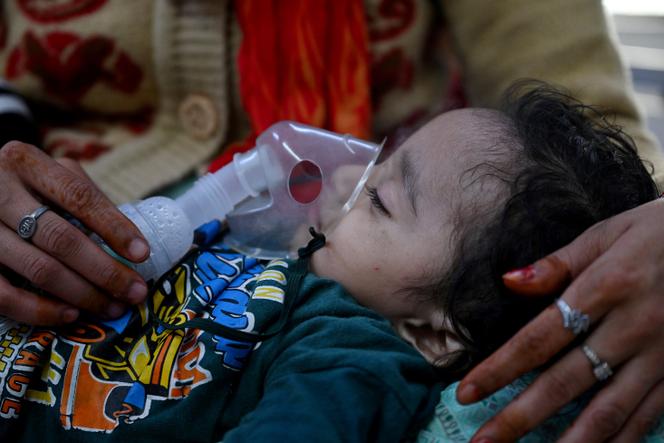


The playgrounds of New Delhi's schools are empty. The children's commotion has given way to silence, and fallen leaves have covered the playgrounds. At the entrance to the Sarvodaya Vidyalaya public school in Defence Colony, in the south of the capital, there are only the two janitors dozing in their little hut. Virtually all the city's schools have been deserted. Faced with the toxic cloud enveloping the Indian capital for several days, the authorities ordered the closure of schools on November 3. First, classes were transferred online. Then, the winter vacations were simply brought forward by a month.
"Breathing in this city is like breathing into a huge saucepan full of dust that gets up your nose and into your mouth," Aaryan Sehgal tried to explain. Aged just 12, Sehgal attends a private school that has also switched to remote learning. "Without air, you suffocate, but in Delhi at the moment, it's the air that suffocates you," wheezed the teenager, whose airways are distinctly affected.
New Delhi's air is unbreathable. As is the case every year, with the onset of winter, PM2.5 levels – the carcinogenic fine particles that penetrate the bloodstream and lungs – reach levels up to 30 times the World Health Organization's recommendations. From November onwards, New Delhi experiences air pollution peaks fuelled by agricultural burning in neighboring states, industrial emissions and road transport. This is combined with cooler temperatures and the absence of wind, drawing pollutants to the ground and preventing them from dissipating.
The youngest are on the front line: in the capital, almost 1 in 3 schoolchildren suffer from asthma and obstructed airways. Children are more vulnerable because some of their vital organs, such as the brain and lungs, are not fully developed. Their respiratory rate is also higher than that of adults, so they inhale more toxic air. The situation is such that the Supreme Court has denounced the "actual murder" of the "young," urging the capital's executive and neighboring states to do more to protect populations from this scourge. A silent killer, air pollution is estimated to have caused 1.67 million premature deaths in India, including almost 17,500 in New Delhi alone.
This pollution is affecting children even before they are born. "Pregnant women breathe in toxic air, and the pollutants penetrate their blood and cross the placenta into the baby's bloodstream, which can cause stunted growth or congenital malformations," warned Arvind Kumar, thoracic surgeon at Medanta Hospital, New Delhi.
You have 65% of this article left to read. The rest is for subscribers only.
